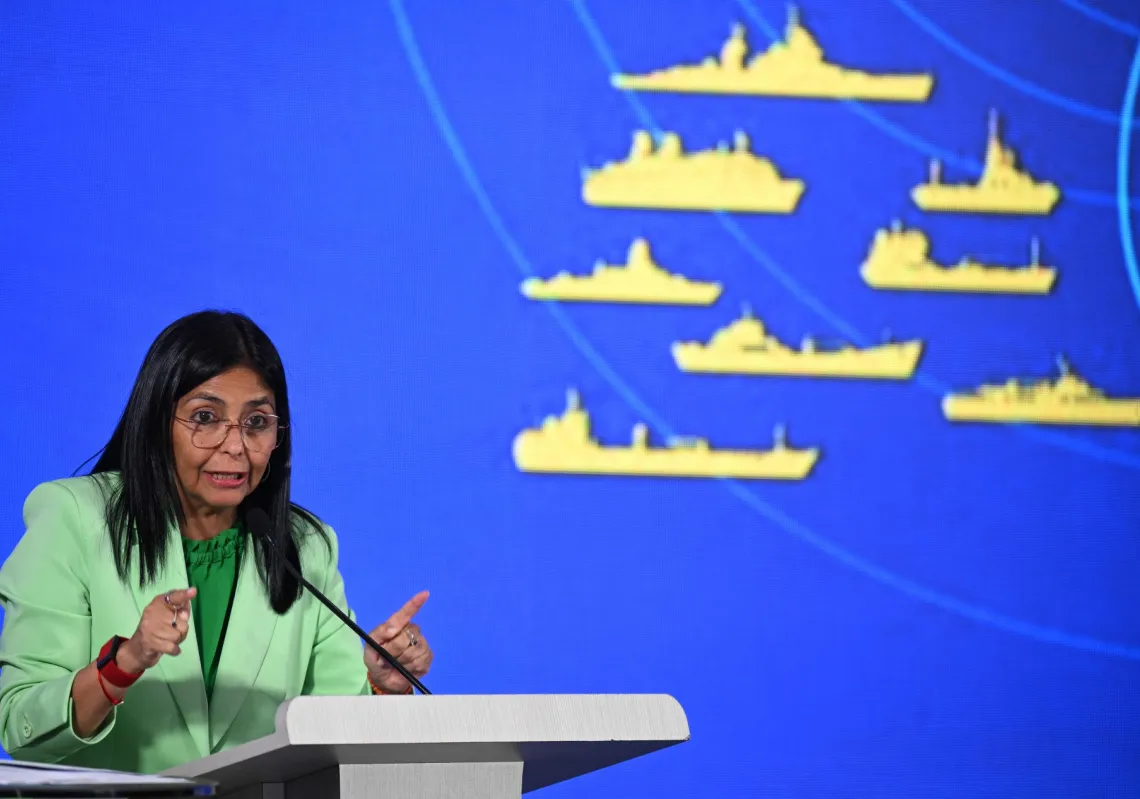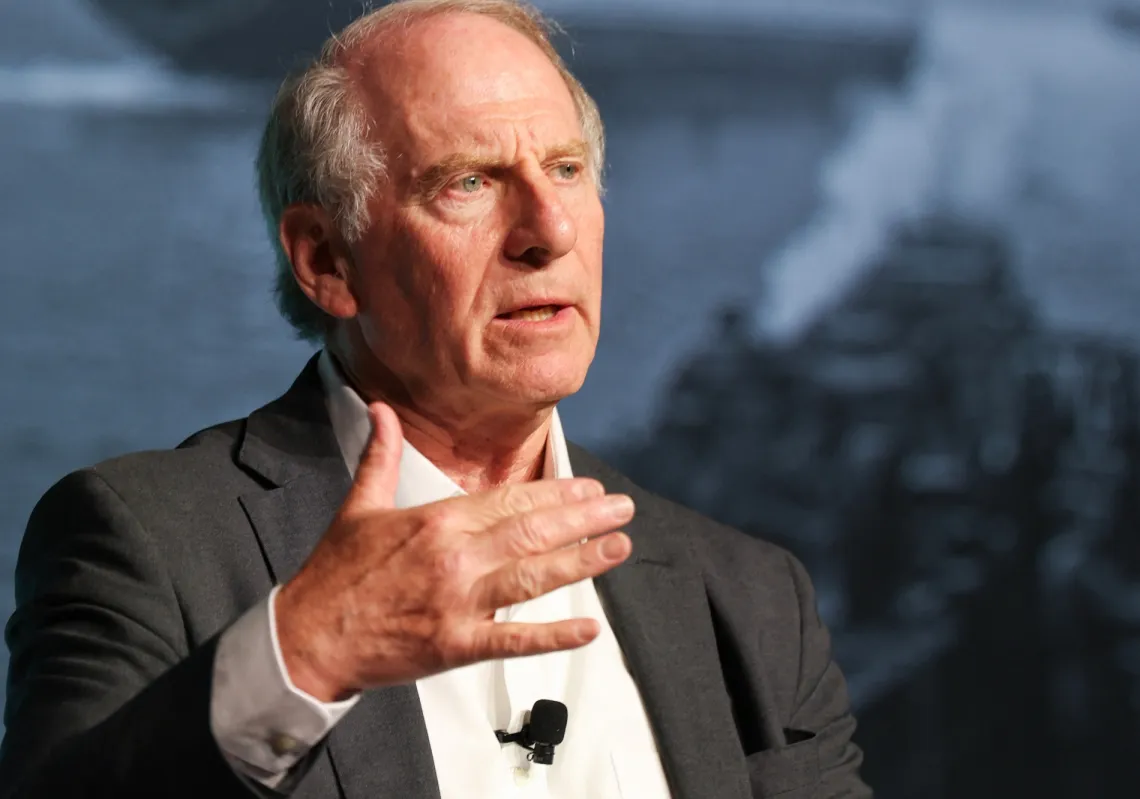Christopher Hill, the son of an American diplomat, was born in Paris in 1952. At a very young age, his family moved to Little Compton, Rhode Island, where he spent the vast majority of his childhood. From 1970-4, he attended Bowdoin College in Brunswick, Maine, where he obtained his Bachelor of Arts degree in Economics. In 1994, he furthered his education by obtaining a Master’s Degree at the Naval War Academy. Upon completing his undergraduate studies, Hill became a Peace Corps volunteer, serving in Cameroon from 1974-6. A year later, in 1977, he passed the American foreign service exam, enabling him to join the US State Department, where he has served his country as a dedicated, life-long diplomat. Due to his extensive experience in Eastern and Southern Europe and the Balkans, Hill speaks Polish, Serbo-Croatian, Macedonian, and Albanian.
Early in his foreign service career, Hill was stationed in Belgrade, Warsaw, Seoul, and Tirana. During that time, he served in the Department of State’s Policy Planning Division and Operation Centre. Hill greatly enhanced his bargaining skills by playing an integral role in the team that negotiated the Bosnia Peace Settlement in 1995. Serving as Deputy at the Dayton Peace Talks, under the tutelage of veteran diplomat Richard Holbrooke, was a major learning experience in Hill’s professional evolution. Holbrooke later described him as ‘brilliant, fearless, argumentative, very cool, and passionate’ and also praised his ‘extremely good negotiating skills’.
From 1996-9, Hill advanced his diplomatic career by serving as the Ambassador to Macedonia. From 1998-9, he was the Special Envoy to Kosovo, an experience in which failed negotiations with the Serbs, who were unwilling to relinquish their stronghold on Kosovo, resulted in the NATO bombing campaign. In the late 90s, Hill also served as Special Assistant to the President and Senior Director for Southeast European Affairs in the National Security Council. His long European stint ended with his service from 2000-4 as Ambassador to Poland, at which time, he returned to Seoul.
From 2004-5, Hill held the position of Ambassador to South Korea. He was successful in managing a bi-lateral relationship that included the presence of 30,000 American soldiers. His open and respectful diplomatic approach quickly gained him popularity among many South Koreans. He frequently delivered speeches in traditionally anti-American establishments such as universities and even set up an on-line chat room in which he personally responded to controversial questions from the general public.
After serving as Ambassador, Hill was appointed as the Assistant Secretary of State for East Asian and Pacific Affairs in which capacity he served as Head of the US Delegation of the six-party talks with North Korea. Negotiating denuclearisation with the North Koreans proved to be a very arduous task. In 2008, following much debate, a tentative agreement was finally reached calling for the disabling of North Korea’s main nuclear facility and complete international monitoring of the country’s plutonium enrichment. Although, at the time, it seemed to be a major breakthrough, today a major stalemate still exists between North Korea and the United States over several issues, most notably, the country’s nuclear arsenal. Nevertheless, Hill believes that the six-party talks were an important step not only in advancing relations between North Korea and the United States, but also in improving bi-lateral relations with China, who he believes is America’s most important future trade partner.
In 2006, former President George W. Bush appointed Hill as Career Minister, the second highest-rank in the diplomatic service, one step below the title of Career Ambassador. On February 27, 2009, Hill was named as US Ambassador to Iraq. When announcing the decision, President Obama said ‘Ambassador Hill has been tested, and he has shown the pragmatism and skill that we need right now.’ On April 20, his nomination was approved in a Senate hearing by a vote of 73 in favour and 23 against. He thus became the fourth ambassador in Iraq since the ousting of Saddam Hussein and the establishment of the new Iraqi government.
In early 2009, Hill’s appointment was heavily debated by politicians in the circles of Washington. He has received criticism in the past, particularly from former Vice-President Cheney, for being too eager to strike a deal, to liberal in granting concessions, and too media-friendly. Moreover, many have questioned what they deem as his lack of success in past dealings with nuclear proliferation and human rights in North Korea. Furthermore, just prior to his Senate confirmation, some government officials raised doubts over his candidature due to his lack of experience in Middle Eastern politics and terrorism, and because he is not an Arabic speaker.
Despite Hill’s potential shortcomings, his 32 years as a diplomat and his excellent reputation as a respectful listener and multi-level, high-stakes negotiator speak for themselves. They have earned him tremendous respect both domestically and abroad. Hill has won several awards for his dedicated foreign service, most notably the Secretary’s Distinguished Service Award (the Department of State’s highest achievement) on two occasions: for his work in negotiating the Bosnia peace accord (1996), and for his leadership in the six-party talks with North Korea (2009).
The Obama administration hopes that Hill can put his wide array of skills and experiences into practice in, perhaps, his greatest diplomatic challenge thus far. Hill will attempt to carry out America’s ambitious goals in the country, in particular, to strengthen the Iraqi government and security forces in order to prevent the country from falling into deeper ethno-sectarian violence. Hill’s negotiating ability will be tested on a daily basis as he continues to push to improve relations among actors within Iraq and the Middle East region. Hill will work alongside Deputy Robert Ford, an Arabic speaker with substantial Iraq experience. Together, they will seek to play an instrumental diplomatic role in ensuring that all American combat troops return home in 2010 and a complete withdrawal takes place, as projected by the Obama administration, by 2012.








